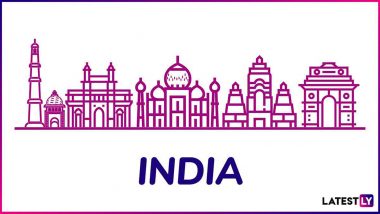By Ankur Sharma
New Delhi [India], November 21 (ANI): The Ministry of Home Affairs (MHA) has approved a study to analyse radicalisation in India, suggest practicable solutions to remedy and/or prevent the problem and also indicate how the Unlawful Activities (Prevention) Act can be amended.
Also Read | PM Narendra Modi to Inaugurate Multi-Storeyed Flats for Members of Parliament on November 23.
The study 'Status of Radicalisation in India: An Exploratory Study of Prevention and Remedies' will be done under the leadership of GS Bajpai, Professor of Criminology and Criminal Justice who is also the Registrar of National Law University.
According to Bajpai, the study will focus on the process of radicalisation, its actors, target youths and will be probably conducted in four states like Maharashtra, Assam, Kerala and Jammu & Kashmir where cases of radicalisation have been reported.
Also Read | Devi Priya, Telugu Poet and Sahitya Akademi Awardee, Dies in Hyderabad.
Currently, there is no clear definition of radicalisation in the legal system. On the basis of the study's findings, Bajpai said that changes in UAPA Act will be suggested to the government.
"This study is about the status of radicalisation in India. This study will analyse the pattern and dynamics of radicalisation. Also, we will study actors of radicalisation and how they are targeting youth," Bajpai told ANI.
"Thirdly we will study who are vulnerable targets. These targets are selectively identified by actors of radicalisation. Fourthly, we are interested in the idea of de-radicalisation. We need the blueprint to counter radicalisation," Bajpai said.
On giving suggestions to amend UAPA Act on the basis of study's findings, Bajpai said, "We will also critically reviewing the current legal aspects, UAPA Act primarily. We would study to define radicalisation and de-radicalisation."
"Approximately 75 radicalised individuals, those undergoing de-radicalisation and de-radicalised individuals shall be sampled from each state. Similarly, 75 functionaries from law enforcement agencies, officers of correctional services and judges will be interviewed from each state," Bajpai said.
"Lastly, approximately 50 relatives of the individuals, psychologists, psycho-social workers, counsellors, religious and community leaders will be sampled from each state," he added. (ANI)
(The above story is verified and authored by ANI staff, ANI is South Asia's leading multimedia news agency with over 100 bureaus in India, South Asia and across the globe. ANI brings the latest news on Politics and Current Affairs in India & around the World, Sports, Health, Fitness, Entertainment, & News. The views appearing in the above post do not reflect the opinions of LatestLY)













 Quickly
Quickly


